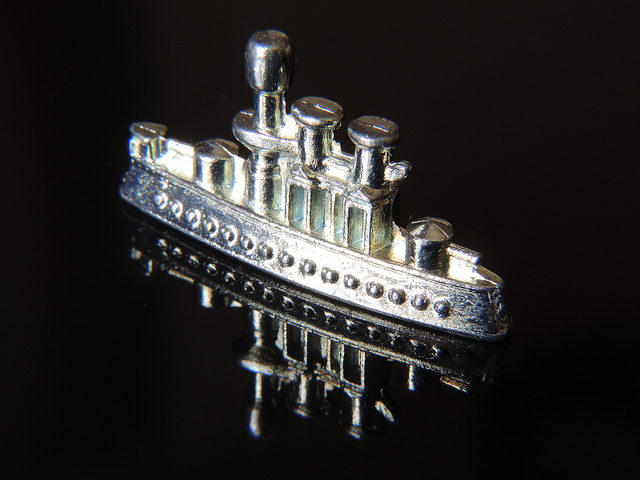Since ASPI was established in 2002, the annual Cost of Defence has delivered 3,579 pages on defence budgeting and management. In total, that’s something like a million words, plus several thousand charts and tables.
Most of what I’ve written has already been forgotten (including by me), and I suspect that what remains will soon fade from memory. That’s okay; those forgotten words are the spent ammunition of past policy debates. I suspect, however, that the numbers I’ve collated over the past 15 years will stand the test of time. For better or worse, numbers allow for seemingly authoritative comparisons between past and present. With that in mind, and to celebrate ASPI’s birthday, here’s a largely by-the-numbers comparison of Defence in 2002 and 2016. Unless otherwise noted, all financial figures are in 2016–17 dollars.
Over the past 15 years, the defence budget has grown from $20.1 billion to $32.4 billion, a 62% real increase. In terms of GDP share, the change is far less impressive; a rise from 1.77% to just 1.88%. Similarly, the share of government spending going to Defence has barely moved; in 2002 it was 7.2%, today it’s 7.3%.
| 2002 | 2016 | |
| Total Spending | $20.1 billion | $32.4 billion |
| % of GDP | 1.77% | 1.88% |
| % of Commonwealth Payments | 7.21% | 7.30% |
Qualitatively, there are further parallels between today and 15 years ago. We are again in the early stages of implementing an ambitious new Defence White Paper and, once again, it’s proving hard to actually spend the money. Some things don’t change.
One thing that has changed is the make-up of the budget in terms of capital investment, personnel costs, and operating costs. Investment has grown by 120%, operating costs by 46%, and personnel costs by 39%. The much more rapid growth of capital investment reflects the ongoing modernisation of the force. Looking back over the past decade and a half, we’ve seen a number of new capabilities enter service, including four new fleets of helicopters (ARH, MRH-90, MH-60R, CH-47), a new aerial refueller (KC-30A), a new fighter (F/A-18E/F), a new tank (Abrams M1), two new amphibious lift vessels (LHD), and an entirely new AEW&C capability (Wedgetail). Along the way, the Army has also picked up a couple of additional battalions, including a regular commando regiment. There’s no doubt that today’s ADF is stronger and better equipped than it was in 2002.
| 2002 | 2016 | |
| Investment | $4.9 billion (24.4%) | $10.8billion (33.5%) |
| Personnel | $8.3 billion (41.5%) | $11.6 billion (35.7%) |
| Operating | $6.9 billion (34.2%) | $10.0 billion (30.0%) |
On the personnel numbers side, the full-time force has increased in size by 14% with the lion’s share of the growth supporting a larger Army. In comparison, the Reserve force has remained about the size it was, as has the civilian APS workforce—though in the latter case the workforce has only recently contracted from a peak of around 21,000 reached in 2012. On the surface, it looks as though there’s been a dramatic fall in the number of contractors performing agency roles within the department—from more than 2,300 to less than 500—but the numbers cannot be trusted. Defence now employs large numbers of external personnel under group contracts (sometimes referred to as capability partnerships) that don’t fall under the old definition of contractors.
| 2002 | 2016 | |
| Navy | 12,847 | 14,394 |
| Army | 25,587 | 30,430 |
| Air Force | 13,646 | 14,385 |
| Total | 52,080 | 59,209 |
| Reserve | 19,620 | 19,110 |
| Civilian | 18,285 | 17,950 |
| Contractors | 2,311 | 490 |
In terms of recruitment into the permanent force, nothing much has changed. The latest reported result was the same as for 2002; 84% attainment of the recruitment target. Over the same period, the separation rate has fallen from 9.8% to 9.1%, with some substantial excursions higher and lower in the years in between.
One difference is clear; the rank/level structure of the ADF and Defence APS has become more top heavy over the past 15 years, with growth in executive and senior officer positions far outstripping the growth of the overall workforce. Planned workforce rationalisations under the First Principles Review (many of which are already reflected in the 2016 figures) won’t bring the numbers anywhere close to 2002 levels. Similar trends have occurred across other government agencies—it’s been a good time to be on the public payroll.
| 2002 | 2016 | |
| Civilian SES | 130 | 152 |
| Star-rank ADF | 120 | 186 |
| Senior Officers (APS) | 3,824 | 5,767 |
| Senior Officers (ADF) | 1,507 | 2,079 |
The management of resources by Defence has been the focus of three major reviews since 2002; Proust in 2007, Pappas in 2008, and Peever in 2015 (what is it with the P’s?) and two major reform programs, the Strategic Reform Program in 2009 and the First Principles Reforms in 2015. Even the most hardened cynic would have to concede that Defence is better managed today than it was in 2002. Financial and human resources are more tightly managed, and there’s a greater unity of effort than there was in the past. The real test will be how well the (yet again) revamped force development and acquisition system handles the raft of projects envisaged in the White Paper.
In summary, compared with 2002, the ADF is a little larger, somewhat better managed, much better equipped, and a lot more expensive. Readers wanting more detail can find the 3,579 pages of the collected Cost of Defence series free to download on the ASPI website.


